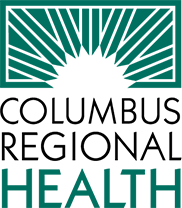4 New Health Checks Your Child Needs
Doctor visits aren’t just for sick kids. Check-ups help your child’s doctor catch hidden health problems early. And the nation’s leading child health organization just updated its checklist for these visits.
In 2014, the American Academy of Pediatrics revised its guidelines to advise four new screenings. Consult this guide before your child’s next appointment.
1. CHOLESTEROL
In the past, only kids with a family history of heart problems got routine cholesterol tests. Under the new guidelines, all kids ages 9 to 11 will have a blood test measuring their levels.
Without help, kids may not outgrow high cholesterol, and it could lead to hardening of the arteries. About 7 percent of children ages 10 to 15 already show early signs of atherosclerosis. Often, diet changes and exercise can steer them back on the right path.
2. DEPRESSION
At any given moment, about 5 percent of children and teens are suffering from depression. Between ages 11 and 21, your child’s doctor will ask questions at each visit to assess your child’s risk. Early treatment with medication and counseling can help lift your child’s mood.
3. HIV
About one in four new HIV infections occur in young people ages 13 to 24. Many don’t know they’re infected. They may pass the virus to others without even realizing it.
The AAP now advises at least one
HIV test between ages 16 and 18. Those at risk, including sexually active teens or injection drug users, should undergo more frequent screenings.
4. HEART DEFECTS
Most babies are born with healthy hearts. But about 18 of every 10,000 newborns arrive with heart defects. Many have no symptoms within the first hours or days.
If doctors catch these problems early, surgery can usually repair them. Following the AAP’s guidance, newborns will now undergo screening for heart defects before leaving the hospital. The doctor or nurse will check to see how much oxygen is in your baby’s blood — a sign of how well the heart is working.
One more change: The AAP no longer recommends testing healthy girls and women age 21 and younger for cervical cancer with a Pap test. Girls and women at a younger age are often able to clear the HPV infection that may lead to cervical cancer. In some high-risk situations, such as HIV infection, Pap tests are done earlier than age 21.
Always check with your child’s pediatrician about which tests and checks are right for your child. Based on medical and family history, the doctor may set a different schedule to safeguard your kid’s good health.
FIND A DOCTOR FOR YOUR CHILD
If you are looking for a pediatrician, click on “Find a Doctor” and search by specialty.

CRH News
-
CRH recognized for excellence in lactation care
Jun 24, 2024, 15:26 by DeClue, A.In addition, the facility demonstrated that it has recently completed activities that help protect, promote, and support breastfeeding.Full story -
Take the ColumBUS Transit Survey
Jun 20, 2024, 08:33 by Newton, A.ColumBUS Transit is conducting a Route Study to look for opportunities to improve the service. Your input will help guide priorities and inform decisions about the future of public transit in our community.Full story -
Orthopedics and Sports Medicine practice moves to NexusPark
Jun 19, 2024, 14:24 by DeClue, A.CRH Orthopedics and Sports Medicine will open at NexusPark on July 1.Full story -
Memorial Day Holiday Physician Office Hours
May 22, 2024, 11:49 by DeClue, A.In observance of the Memorial Day holiday, most Columbus Regional Health Physicians offices and outpatient clinics will be closed on Monday, May 27, 2024.Full story -
Guardian Response Trains with CRH on Patient Transport
Apr 26, 2024, 15:25 by DeClue, A.On April 29 and May 2, Columbus Regional Health and area first responders will be conducting a training session in partnership with military representatives. This is a planned, simulated emergency drill.Full story -
Final Two CRH Practices Move to NexusPark
Apr 18, 2024, 12:36 by DeClue, A.CRH at NexusPark officially opened in late January, and more than 15 provider practices and services have relocated to the space in the first quarter of 2024.Full story

